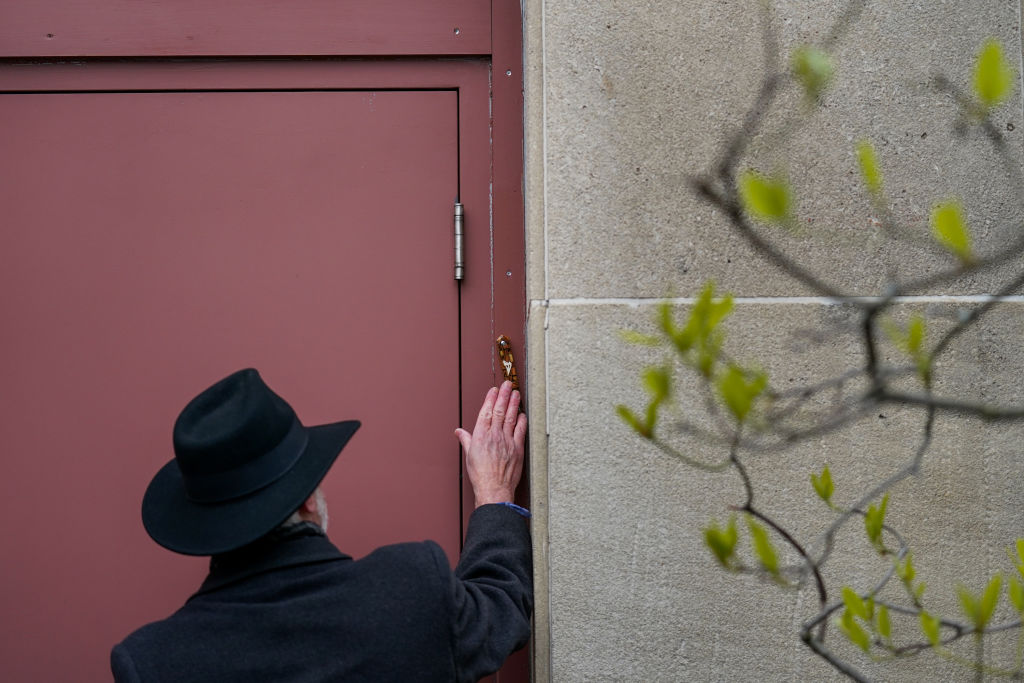When I am invited to give talks about the Tree of Life synagogue massacre, I sometimes ask my audiences this question: “How many mass shootings in the United States can you name?” I can see them begin to count on their fingers, while they whisper to themselves: “Columbine, Sandy Hook, Parkland, Orlando…”
Those are the four that most everyone knows. For many people, the Mother Emanuel church shooting and the school shootings in Uvalde, Texas, and at Virginia Tech also make the cut, having secured a place in their memories. But after that, people tend to struggle to think of another. After giving them half a minute to finalize their lists, I always say, “I don’t know about you, but I can’t remember more than 10, and I’m an expert!” And they give me grateful looks of relief. They couldn’t get more than 10 either.
The long-awaited trial of Robert Bowers, the alleged assailant in the 2018 Pittsburgh attack, which claimed the lives of 11 Jews attending Sabbath services, has just begun. “Tree of Life” is one of those names that has taken on multiple meanings: It’s a synagogue building, one that houses three different congregations, but now it’s also the name of an attack—the deadliest antisemitic attack in American history. And yet I have realized that very few people have any associations with “Tree of Life” at all. Like nearly all mass shootings, it becomes more forgettable than we would imagine. Which is sad—but also, I have come to accept, the new normal. We are so awash in news of violent crimes, that we are forced to remember, and forget, selectively.
More from TIME
As a result, a trial like this one, of a perpetrator who is almost certainly guilty—he was caught in the act—serves a useful role, not only in its attempt to bring justice to violence, but also in reminding people of the attack and of the lives lost. For a few weeks or months, we’ll be reminded of a specific crime and the terror of that unique moment, before another attack shifts our attention away from Pittsburgh, forcing Tree of Life to the back of our minds, with all the others.
Initially, I was troubled by the magnitude of our collective forgetting. For many years, the FBI regarded as a “mass shooting” any attack in which four or more victims died; in 2013, they lowered the number to three. This definition still excludes violent attacks in which, say, 10 people are injured but no one is killed. It also fails to capture gun battles in which people are hit on both sides. Still, using the federal government’s definition, we have had 144 mass shootings since 1982.
After all, given how many mass shootings we have all endured, shouldn’t our minds be veritable atlases of bloody grief? Shouldn’t we be able to look at a map of the country and extend empathy across the time zones, to dozens of cities that have been hit by this scourge?
Instead, I have found that, beyond those few catastrophes that we all seem to know about, we remember the ones that feel personal, often for reasons of ethnic or geographical identity. Black people remember the shooting in Charleston, at a Black church; Sikhs remember the shooting at a Sikh temple in Wisconsin, in 2012; those in the LGBTQ+ community remember Orlando; Jews remember the attack on the three congregations meeting at the Tree of Life building, in Pittsburgh in 2018, which left 11 Jews dead—half of all the people inside.
But then there’s a further wrinkle, which is that even many of the Jews I meet seem to have only a foggy memory of this attack. It’s not uncommon for me to mention the Tree of Life shooting to a fellow Jew, only to get met with a puzzled expression. When I remind them of what I am talking about—“the synagogue attack, the one in Pittsburgh”—they generally snap to and remember the incident. But it’s not at the front of their mind—not in the way the three syllables of “Columbine” have lodged in our collective memory.
Forgetting, in many ways, is our bodies’ adaptive response for survival. But it’s also a sign of the terrible times in which we live. This kind of perennial violence has numbed us, forced us to trade fresh outrage for a generalized despair. A trial at least gives us permission to demand something—if not an end to the killing, then at least a chance for us to stand still and bear witness.
As it happens, several of the attacks that have the most collective pull involved the deaths of young people. Perhaps we are all compelled by the horror of lives cut short, even more than by the persistence, demonstrated in Pittsburgh and Charleston, of antisemitism and racism. From time to time, I wish that “Tree of Life” meant more to more people; I wish the term reminded us of the rising antisemitism that should matter to us all. I wish it didn’t take such senseless murder to remind people what those words mean. But right now, that’s too much to ask of one mass shooting; that’s the cost of its being one too many.
More Must-Reads from TIME
- Why Trump’s Message Worked on Latino Men
- What Trump’s Win Could Mean for Housing
- The 100 Must-Read Books of 2024
- Sleep Doctors Share the 1 Tip That’s Changed Their Lives
- Column: Let’s Bring Back Romance
- What It’s Like to Have Long COVID As a Kid
- FX’s Say Nothing Is the Must-Watch Political Thriller of 2024
- Merle Bombardieri Is Helping People Make the Baby Decision
Contact us at letters@time.com
